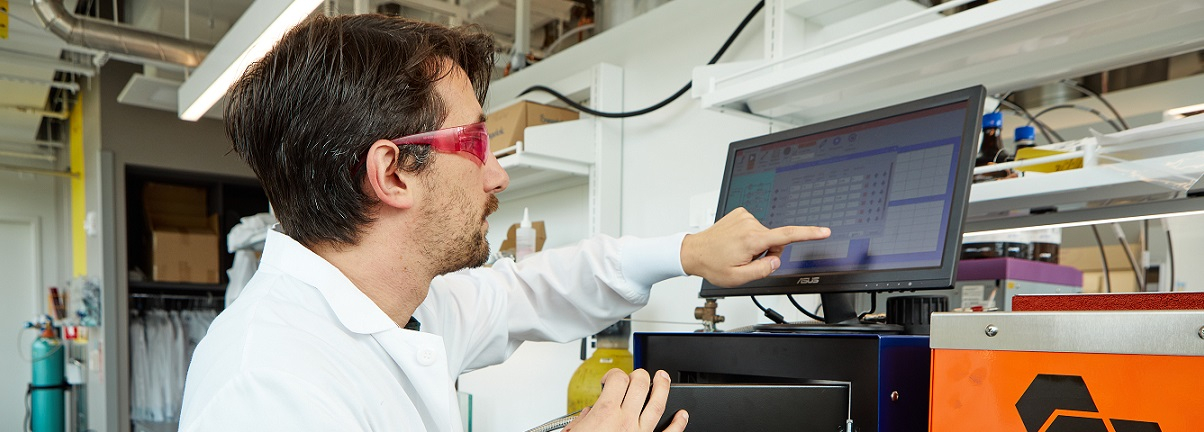
MassCEC / Tech 2 Market / Funding / Massachusetts Climatetech Studio
The Challenge: Create New Climatetech Startups
Solving the problems of climate change and environmental degradation takes a combination of new technologies, policy, and business models to ensure that effective solutions make it out of the lab and into widespread, profitable and sustainable commercial use.
Venture capitalists, corporations, and strategic investors who are focused on climate problems face a shortage of attractive and investment-ready ventures. Intellectual property (IP) that is stuck in universities and research institutions needs to be paired with dedicated entrepreneurs who can develop it into viable, investment-ready technology.
About the Massachusetts Climatetech Studio
The Massachusetts Climatetech Studio, a partnership between the Massachusetts Clean Energy Center (MassCEC) and FedTech, is helping entrepreneurs launch new climate technology ventures. The Climatetech Studio matched teams of entrepreneurs with cutting-edge technologies from federal and university labs during an intensive 16-week program cohort. Entrepreneurs worked closely with expert coaches and advisors to assess the potential of their technologies and form strategies for successful commercialization. Each participant received a $15,000 stipend and had the chance to win further prize money and grant funding. There was no cost to participate, no equity taken, and the program was designed to be flexible for those working full-time.
Tech Source: Worcester Polytechnic Institute
Thalon Materials supplies automotive and defense manufacturers with clean, domestic magnesium metal. Using a patented electrolysis process, we produce low-carbon, cost-competitive magnesium without toxic byproducts. Our process cuts the carbon footprint of today’s dominant production method by more than 10x and can uniquely repurpose idle aluminum smelters for production.
Mirra – Kirthika Padmanabhan, Elizabeth Bridges, Christa Campbell
Tech Source: Northeastern University
Mirra is on a mission to replace artificial food dyes with plant-based, high-performing colorants that are UV-resistant and fully biodegradable. Starting with white, our colorants replace petroleum derived and mined pigments like titanium dioxide in food - a multi-billion-dollar global market under consumer and regulatory pressure. Starting with a patented technology developed at Northeastern University, Mirra is building colorants with drop-in compatibility, giving brands a safe, sustainable, and vibrant alternative.
JUNTO – David Thompson, Tao Dai
Tech Source: Massachusetts Institute of Technology
JUNTO is developing next-generation batteries that are safer, more energy dense, and easier to manufacture, tailored for the electric vehicle market. By leveraging abundant and sustainable materials, we enable scalable, cost-effective solutions that accelerate the transition to clean mobility.
2025 Studio Cohort Technologies
- High-Efficiency Lithium Recovery from Battery Waste
- An electrochemical method for separating lithium, utilizing cost-effective membrane technology to achieve high selectivity.
- Solar-Powered Ammonia Production for Green Energy
- An advanced solar thermochemical looping technology that produces and stores nitrogen from air for the subsequent production of ammonia.
- Advanced Hydrogen Electrolysis with Bubble-Free Electrodes
- An integrated oscillation system during the process of hydrogen production through electrolysis.
- Reduced Vortex Blade
- A new wind turbine blade design which has the potential to improve energy generation, maintain wingspan, and reduce noise pollution compared to traditional solutions.
- Solvent-Free Manufacturing for Solid-State Batteries
- A novel method to deploymerize polysiloxanes, a class of silicon-based polymers, at room temperature using environmentally friendly solvents and non-toxic catalysts.
- Rare Earth Magnets Recycling
- Rare Earth Magnets Recycling technology provides a sustainable solution to recover and reuse rare earth metals from industrial magnet scrap.
- Plant-Based Seafood
- A new technology designed to create realistic plant-based seafood analogues by printing bio-inks made of non-animal proteins.
- Edible, Nature-Inspired Colorants
- This technology provides natural colorants for food products, coatings and cosmetics, etc. offering a non-toxic and sustainable alternative to synthetic dyes.
- Biological Carbon Sequestration Using Waste Materials
- A novel carbon sequestration method that leverages a biological process to address climate change.
Who Was Eligible
Applications were accepted from aspiring entrepreneurs nationally, and Massachusetts residents were especially encouraged to apply. We know that potential entrepreneurs come from a variety of different backgrounds and experiences with respect to entrepreneurship and technological innovation. We looked to form teams that had a balance of skills, and we didn't expect them to have experience in all areas mentioned in the application.
MassCEC / Tech 2 Market / Funding / Massachusetts Climatetech Studio